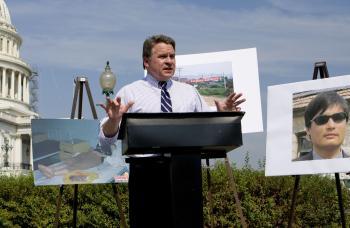WASHINGTON, D.C.—Before Chinese Premier Wen Jiabao leaves the U.S., human rights activists say President Obama should bring up a topic that is as important as it is underreported: the systematic destruction of tens of millions of unborn babies, overwhelmingly female.
It began on Sept. 25, 1980, almost 30 years ago to the day. After two years of policy formulation, the Central Committee of the Chinese Communist Party promulgated its plan to launch a one-size-fits-all approach to reproduction, the coercive family planning scheme known as the one-child policy.
The architects of the policy were actually elite scientists in the military establishment—at that time in China almost all science was military science—who applied theories of cybernetics to disputed sociological theories from the West, redefining China’s population problem along the lines of the hard science of complex machine systems. The result was a radical solution to the perceived “overpopulation” problem, led by one of China’s leading strategic weaponeers, according to the extensive research of Dr. Susan Greenhalgh from the Univeristy of California, Irvine.






